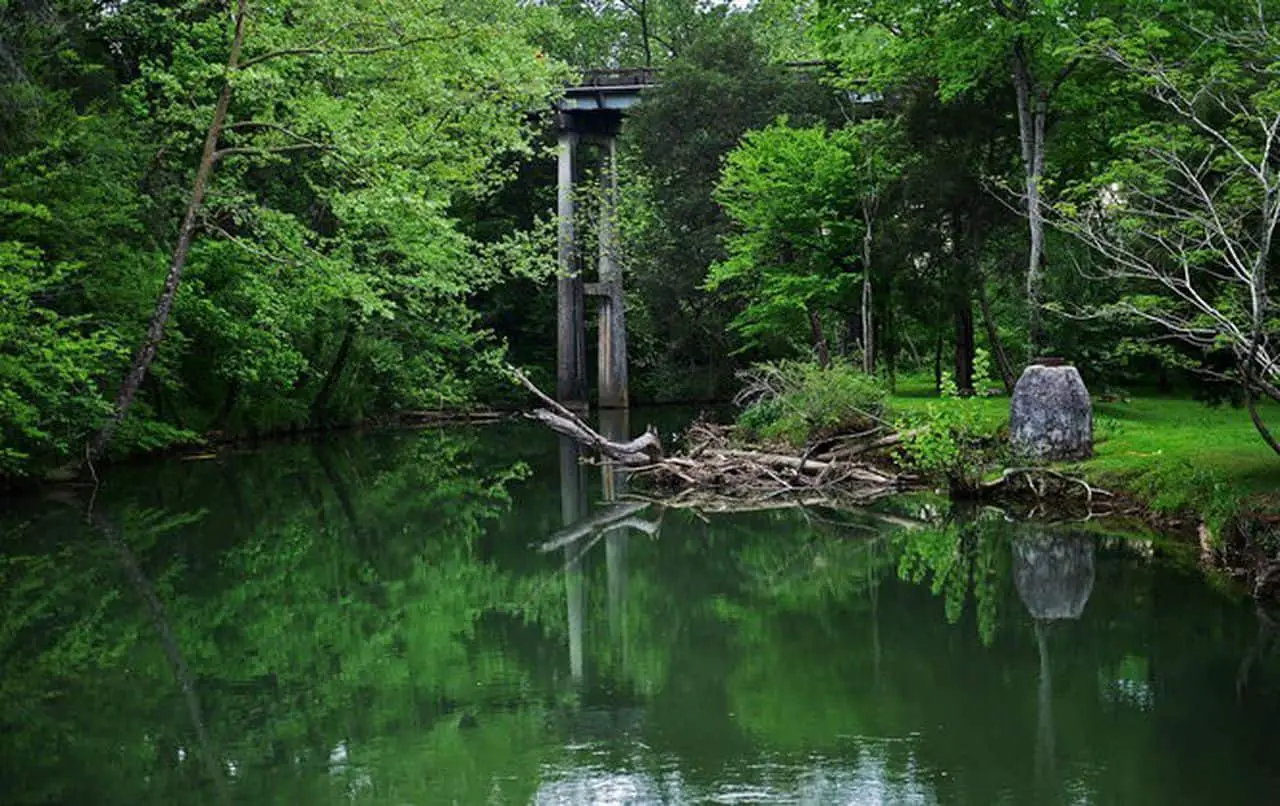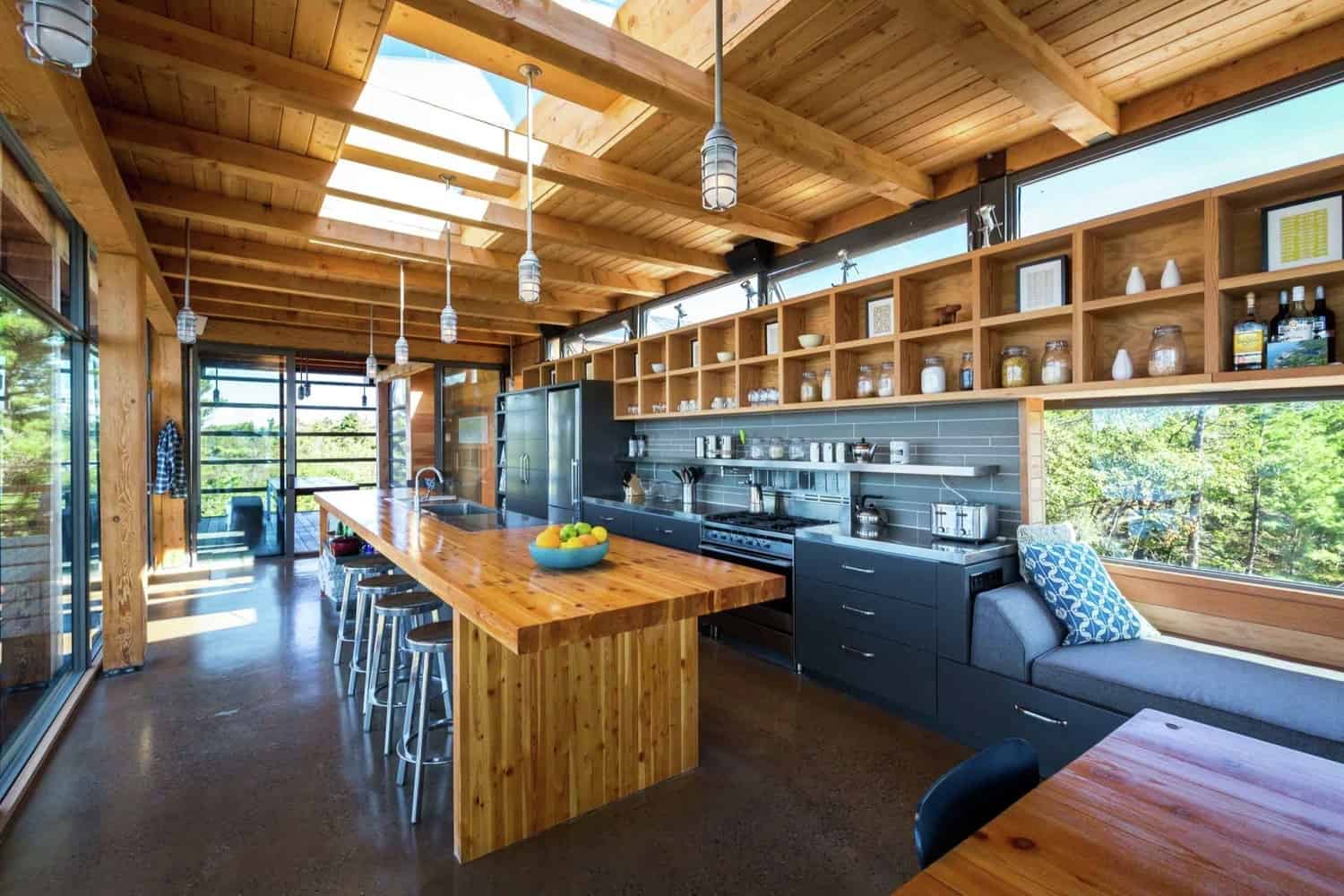Off grid living laws Alabama: Dream of escaping the grid and embracing a self-sufficient lifestyle in the Yellowhammer State? Before you build your dream cabin or solar-powered homestead, understanding Alabama’s unique legal landscape is crucial. This comprehensive guide navigates the complexities of land ownership, building permits, utility regulations, environmental considerations, and property taxes, empowering you to make informed decisions on your off-grid journey.
We’ll uncover the nuances of zoning, water rights, waste management, and more, ensuring you’re prepared for the challenges and rewards of this exciting path.
Alabama offers a diverse range of environments, from rolling hills to coastal plains, each presenting its own set of opportunities and regulatory hurdles for off-grid living. This guide will help you identify counties with more relaxed zoning laws, understand the permitting process for off-grid structures, and learn how to minimize your environmental impact while complying with all relevant regulations.
We’ll explore the financial aspects, too, providing insights into property taxes and insurance options specifically tailored for off-grid properties.
Building Codes and Permits in Alabama for Off-Grid Structures
Embarking on the journey of off-grid living in Alabama requires careful navigation of the state’s building codes and permitting processes. While the allure of self-sufficiency is strong, understanding and adhering to these regulations ensures a safe and legally sound dwelling. This section clarifies the specific codes, permits, and inspections relevant to constructing an off-grid home in the Yellowhammer State.
Applicable Building Codes
Alabama’s building codes, primarily governed by the Alabama State Fire Marshal’s Office and local jurisdictions, apply to off-grid structures just as they do to grid-connected homes. These codes address crucial aspects of safety, including structural integrity, fire protection, electrical systems, plumbing, and sanitation. Specific code requirements vary depending on the county and municipality where the property is located.
It’s crucial to contact the local building department for precise and up-to-date information regarding the applicable codes before initiating any construction. Failure to comply can result in costly delays, fines, and even demolition orders.
The Permitting Process for Off-Grid Homes
Securing the necessary permits is a non-negotiable step in constructing any structure in Alabama, including off-grid dwellings. The process generally involves submitting detailed plans and specifications to the local building department. This documentation should include architectural drawings, engineering calculations (particularly important for structural elements and unique off-grid systems), and specifications for all building materials. Furthermore, proof of property ownership and compliance with zoning regulations are essential.
The review process can take several weeks or even months, depending on the complexity of the project and the workload of the building department. Pre-application consultations with the building department are highly recommended to avoid potential delays and ensure plan approval.
Inspection Requirements
Throughout the construction process, multiple inspections are mandated to verify compliance with the applicable building codes. These inspections typically cover foundation work, framing, electrical wiring, plumbing, and final completion. The frequency and specifics of these inspections are determined by the local building department. Scheduling inspections promptly and addressing any identified deficiencies promptly is vital for maintaining a smooth and efficient construction process.
Failure to pass inspections may halt construction until corrections are made.
Alternative Building Methods
Alabama’s building codes generally permit a range of alternative building methods, provided they meet the established safety and performance standards. This opens possibilities for innovative and sustainable off-grid construction techniques.
- Straw Bale Construction: This eco-friendly method uses tightly packed straw bales as structural elements, offering excellent insulation and a unique aesthetic. Properly engineered straw bale structures can meet Alabama’s building codes, provided they incorporate adequate protection against moisture and pests.
- Earthbag Construction: This technique involves filling bags with earth or compacted soil and using them as building blocks. Similar to straw bale construction, earthbag buildings require careful planning and execution to ensure structural stability and weather resistance. They offer excellent thermal mass, reducing energy needs for heating and cooling.
- Timber Framing: Traditional timber framing, using heavy timber posts and beams, is a durable and aesthetically pleasing option. This method requires skilled craftsmanship and adherence to stringent engineering calculations to ensure structural integrity and compliance with code requirements.
Utilities and Infrastructure for Off-Grid Living in Alabama
Embarking on off-grid living in Alabama requires careful consideration of utilities and infrastructure. Successfully navigating the legal landscape surrounding electricity generation, water management, and waste disposal is crucial for a sustainable and compliant lifestyle. This section details the specific legal requirements and considerations for each aspect.
Renewable Energy Generation in Alabama
Alabama’s legal framework for generating electricity from renewable sources like solar and wind power is generally supportive, though specific regulations vary depending on the scale of the project. For small-scale, off-grid systems, the primary concern is typically compliance with electrical codes to ensure safety. The Alabama State Fire Marshal’s Office plays a key role in enforcing these codes, requiring inspections and adherence to safety standards for electrical installations.
Larger systems, or those intending to sell excess power back to the grid (net metering), will require additional permits and may need to interact with the Alabama Public Service Commission. It is advisable to consult with a qualified electrician experienced in off-grid systems and local permitting processes to ensure full compliance.
Water Collection and Storage Regulations in Alabama
Water collection and storage for off-grid living in Alabama must adhere to both state and local regulations. These regulations primarily focus on preventing contamination of water sources and ensuring the safety of the stored water. The Alabama Department of Environmental Management (ADEM) is the primary regulatory body. Specific regulations can vary depending on the water source (e.g., rainwater harvesting, well water).
Rainwater harvesting often requires permits if the collected water is used for potable purposes. Wells require permits and testing to ensure the water is safe for consumption. Properly constructed and maintained storage tanks are crucial to prevent contamination and comply with regulations. Detailed information on specific permitting requirements and water quality standards is available through ADEM.
Wastewater and Sewage Disposal Regulations in Alabama
Managing wastewater and sewage in an off-grid setting in Alabama requires careful planning and compliance with ADEM regulations. The specific requirements depend on the type and size of the wastewater treatment system. Septic systems are commonly used, and their installation and maintenance must meet ADEM’s standards. Alternative systems, such as composting toilets and greywater systems, may also be permissible, but they require careful design and adherence to specific regulations to prevent environmental contamination.
It is crucial to obtain necessary permits and approvals before installing any wastewater treatment system. Failure to comply can result in significant fines and legal action.
Comparison of Off-Grid Waste Management Solutions
Understanding the legal implications of different waste management methods is vital for compliance. The following table summarizes the legal considerations for common off-grid options:
| Waste Management Method | Legal Considerations |
|---|---|
| Composting Toilets | May require permits depending on location and size; must meet ADEM’s regulations regarding proper composting and waste disposal to prevent contamination of soil and groundwater. Specific setback requirements from water sources may apply. |
| Greywater Systems | Requires careful design and installation to prevent contamination of soil and groundwater. ADEM may require permits and inspections to ensure compliance with regulations regarding greywater reuse and disposal. Specific restrictions may apply depending on the type of greywater system used and the location. |
| Septic Systems | Requires permits and adherence to ADEM’s regulations for design, installation, and maintenance. Regular inspections are often mandated. Failure to maintain the system properly can result in significant fines. |
Alabama’s Environmental Regulations and Off-Grid Living
Embarking on an off-grid lifestyle in Alabama requires careful consideration of the state’s environmental regulations. Balancing self-sufficiency with environmental protection is crucial for both personal well-being and the preservation of Alabama’s natural resources. Understanding these regulations and proactively mitigating potential environmental impacts is key to a successful and sustainable off-grid existence.
Relevant State and Local Environmental Regulations
Alabama’s environmental regulations are multifaceted, encompassing various agencies and jurisdictions. The Alabama Department of Environmental Management (ADEM) is the primary agency responsible for enforcing environmental laws. These laws cover a wide range of activities, including water quality, air quality, waste management, and land use. Local county and municipal governments also have ordinances that may further restrict or regulate specific activities related to off-grid living, such as septic system installation, well drilling, and land clearing.
Specific regulations vary based on geographic location and the nature of the planned off-grid activities. It is essential to research all applicable regulations at the state, county, and municipal levels before initiating any projects.
Permitting Processes for Environmentally Impactful Activities
Many activities associated with off-grid living require permits from ADEM or local authorities. Land clearing, for example, often necessitates a permit to ensure compliance with erosion control and forest conservation regulations. Well drilling requires a permit to ensure the well is properly constructed and does not contaminate groundwater. Septic system installation also requires permits and adherence to specific design and placement requirements to prevent groundwater contamination.
The permitting process typically involves submitting an application, providing detailed plans, undergoing inspections, and obtaining necessary approvals. Delays can occur if applications are incomplete or if proposed projects fail to meet environmental standards. Proactive engagement with the relevant authorities is essential to streamline the permitting process and avoid potential setbacks.
Potential Environmental Concerns and Mitigation Strategies
Off-grid living, while promoting self-sufficiency, presents potential environmental concerns if not carefully managed. Improper waste disposal can lead to soil and water contamination. Unsustainable land clearing practices can result in erosion, habitat loss, and increased runoff. Improperly constructed wells can contaminate groundwater sources. Mitigation strategies include implementing comprehensive waste management plans, such as composting toilets and greywater recycling systems.
Employing sustainable land clearing techniques, such as selective clearing and preserving existing vegetation, minimizes environmental impact. Proper well construction and regular water testing safeguard groundwater quality. Utilizing renewable energy sources reduces reliance on fossil fuels and minimizes greenhouse gas emissions.
Minimizing Environmental Impact: A Proactive Plan
Careful planning is paramount to minimizing environmental impact while building and living off-grid in Alabama. A comprehensive plan should address all aspects of environmental stewardship.
Notice off grid living food for recommendations and other broad suggestions.
- Sustainable Land Management: Conduct a thorough site assessment to identify environmentally sensitive areas. Minimize land clearing, preserving existing trees and vegetation whenever possible. Implement erosion control measures during and after construction. Utilize sustainable forestry practices if harvesting timber.
- Water Conservation and Management: Install a rainwater harvesting system to reduce reliance on groundwater. Employ water-efficient appliances and fixtures. Design a greywater recycling system to reuse water for irrigation or other non-potable uses. Regularly test well water for contamination.
- Waste Management: Implement a composting toilet system to minimize wastewater discharge. Compost organic waste. Recycle and reuse materials whenever possible. Properly dispose of hazardous waste according to ADEM guidelines.
- Renewable Energy: Utilize solar, wind, or other renewable energy sources to power the off-grid home, reducing reliance on fossil fuels and minimizing greenhouse gas emissions.
- Wildlife Habitat Protection: Avoid disturbing natural habitats. Plant native vegetation to support local wildlife. Design structures to minimize impact on wildlife movement and foraging areas.
Legal Considerations for Property Taxes and Insurance in Off-Grid Alabama: Off Grid Living Laws Alabama

Embarking on the off-grid journey in Alabama requires careful consideration of the financial landscape, particularly property taxes and insurance. Understanding these aspects is crucial for budgeting and ensuring a secure future in your self-sufficient haven. Failure to properly navigate these legal requirements can lead to unexpected costs and potential complications.Property Tax Assessment on Off-Grid Properties in AlabamaAlabama’s property tax system assesses off-grid properties similarly to conventionally-serviced properties.
The county tax assessor’s office values the land and any structures based on factors such as size, location, and improvements. The assessed value is then multiplied by the local tax rate to determine the annual property tax liability. While the presence or absence of utilities might not directly impact the land valuation, the quality and value of any structures built will significantly affect the assessment.
For instance, a meticulously crafted, off-grid home with high-quality materials will likely command a higher assessment than a basic cabin. It is advisable to regularly review the assessment to ensure accuracy and challenge any discrepancies through the established appeals process.
Insurance Availability and Cost for Off-Grid Homes
Securing adequate insurance for an off-grid home in Alabama can present unique challenges. Standard homeowners insurance policies may not fully cover the specific risks associated with off-grid living, such as reliance on alternative energy sources or water systems. Specialized insurers or riders might be necessary to ensure comprehensive coverage. The cost of insurance will vary based on factors such as the location of the property, the type and value of the structures, the chosen coverage levels, and the specific risks involved.
Remote locations, for instance, might increase premiums due to factors like longer response times for emergency services. It’s crucial to compare quotes from multiple insurers to find the most suitable and cost-effective coverage.
Implications of Different Insurance Options
Choosing the right insurance policy is paramount for protecting your investment and mitigating potential financial losses. A basic homeowners policy might offer limited coverage for damages related to off-grid systems. A more comprehensive policy, potentially requiring specialized riders or a separate policy for alternative energy systems, will offer broader protection but at a higher cost. Liability coverage is also critical, as it protects you from financial responsibility in case of accidents or injuries on your property.
Thoroughly review policy details, including exclusions and coverage limits, before committing to any policy. Consider the potential costs of repairing or replacing critical off-grid systems, such as solar panels or water wells, when determining appropriate coverage levels.
Scenario: Tax and Insurance Costs for a Hypothetical Off-Grid Property, Off grid living laws alabama
Let’s imagine a hypothetical 5-acre property in rural Alabama with a newly constructed 1500 sq ft off-grid home valued at $250,000. The land itself might be assessed at $50,000, resulting in a total assessed value of $300,000. With an average property tax rate of 1%, the annual property tax could be approximately $3,000. Securing comprehensive insurance, including coverage for the structure, liability, and specialized off-grid systems, might cost between $2,000 and $4,000 annually, depending on the insurer and coverage level.
This scenario highlights the importance of factoring in these substantial annual costs when planning your off-grid budget. Remember that these are estimates and actual costs will vary based on specific circumstances.
Embarking on an off-grid adventure in Alabama requires careful planning and a thorough understanding of the legal framework. While the path may seem challenging, the rewards of self-sufficiency and connection with nature are immense. By equipping yourself with the knowledge provided in this guide, you can confidently navigate the regulatory landscape, minimize potential risks, and build a thriving, sustainable off-grid lifestyle in the heart of Alabama.
Remember, responsible off-grid living is not just about independence; it’s about respecting the environment and contributing to the community. So, take the leap, explore the possibilities, and embrace the freedom of off-grid living in Alabama!
Questions Often Asked
What are the common misconceptions about off-grid living in Alabama?
Many believe it’s completely unregulated. While less regulated than urban areas, significant rules still apply regarding land use, building, and environmental protection.
Can I completely disconnect from utilities?
Complete disconnection is difficult. While you can generate your own power and water, waste disposal often requires compliance with specific regulations.
How do I find land suitable for off-grid living?
Consult real estate agents specializing in rural properties and thoroughly research zoning regulations for your chosen county before purchasing.
What are the insurance implications?
Securing insurance for off-grid homes can be more challenging and expensive due to increased risk. Shop around and disclose all relevant details to insurers.


